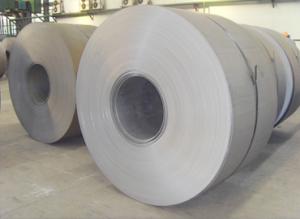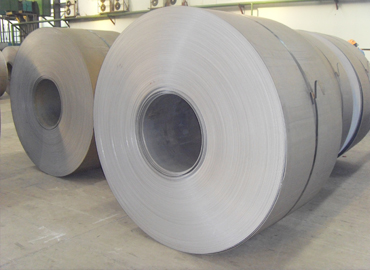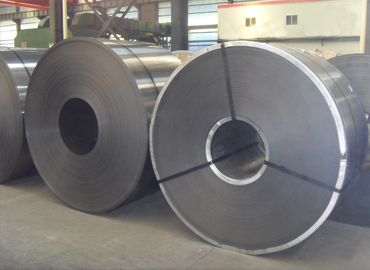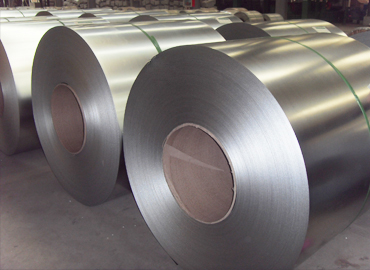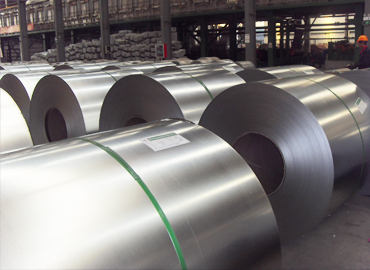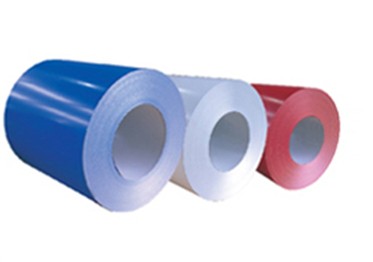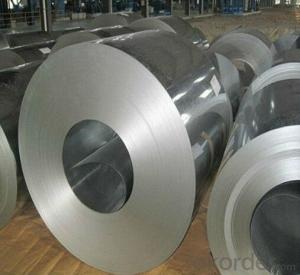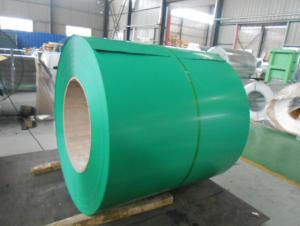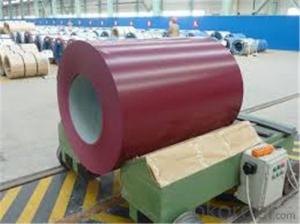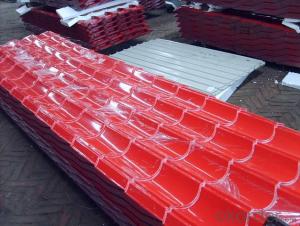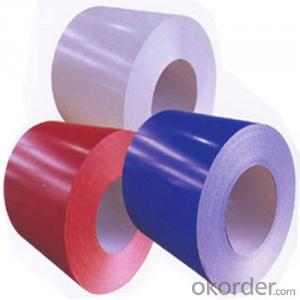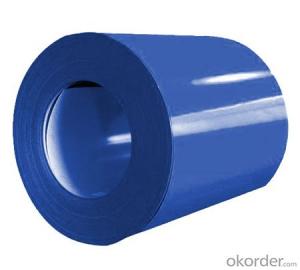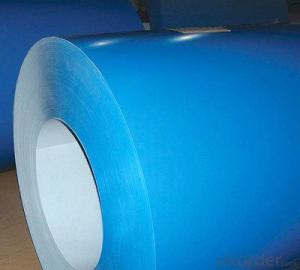Prepainted Gavanized Steel Coils
- Loading Port:
- China Main Port
- Payment Terms:
- TT OR LC
- Min Order Qty:
- -
- Supply Capability:
- -
OKorder Service Pledge
Quality Product, Order Online Tracking, Timely Delivery
OKorder Financial Service
Credit Rating, Credit Services, Credit Purchasing
You Might Also Like
GALVANIZED PREPAINTED STEEL COIL IS OUR STAR PRODUCT
Light weight, anti-corrosion, prevent pollution, applied in many fields
Standard | AISI, ASTM, BS, DIN, GB, JIS, etc |
Grade | PPGI, SGCC, CGCC, DX51D, DC51D, TDC51D, TS280GP, etc |
Thickness | 0.2-1.2mm |
Width | 700-1250mm |
Inner Diameter | 508/610mm |
Coil Weight | 3-8 Tons |
Color Number | RAL Pantone |
Coating | Top Side: 20-25um Bottom Side: 8-10um |
- Q: I'm a hiker and cook on a camp fire with a canteen cup. So which would be a better material for cooking on a campfire with, aluminum or stainless steel?
- Direct fire will kind of ruin stainless steel. I've screwed up several stainless steel pans cooking directly on a campfire. I have to agree with wildflower the best route by far in a small cast iron pan. They are pretty heavy though.
- Q: so i've started learning to play guitar in the past few weeks, and i'm using my sister's old guitar which isn't in very good condition, so i'm planning on buying a new one, but which would be better to buy, nylon string or steel string?
- it all depends nylon is faster, and brighter than steel, but is available only on acoustic as coil pickups won't detect them(only peizo will). That is one reason. Another is price, you tend to replace the nylon more often as it is weaker, and less resistant to corrision. EVEN THOUGH strings have a larger price range, and be cheaper than steel, or considerably more expensive. overall the nylon is brighter, but quite-er. Steel is louder, but deeper. nylon doesn't get feedback as easily, and is amazingly fast and easy to play. some think nylon sounds old fashoined(it looks it too, with an open headstock, ond classical look(sometimes mistaken as another name for it). MY SUGGESTION- visit your local music shop and try out steel, and nylons to in person get a feel for the sound.(remember that you get what you pay for, go as high in price as you can reasonably afford) ALWAYS TRY BEFORE YOU BUY, PLAY BOTH TYPES IN THE SAME RANGE OF PRICE(at least $400), THEN DECIDE WHAT SOUNDS BETTER TO YOU(and of course feels better and easier to play).
- Q: Hello. No freakin' website has no dam info on what products have carbon steel in them. I know it's in cooking equipment and tools, but what tools?i.e It's in a wrench or strainerSo what products have carbon steel in them?
- A simplification: Carbon steel is all of the steel things that aren't either HSS (high speed steel) or Stainless Steel. It also goes under the name Mild Steel. Things like tubes used to make furniture, shelving, some tools, wire wool, older car bodies, ships, BBQs would be made from carbon steel. As well as the properties listed on the linked website it responds well to heat treatment and be hardened more than HSS but will quickly get blunt if exposed to heat. Carbon steel is often coated with zinc or is painted to stops it from rusting
- Q: How are steel coils coated for corrosion resistance?
- Steel coils are typically coated for corrosion resistance using various methods such as hot-dip galvanizing, electroplating, or applying a protective layer of paint or powder coating.
- Q: How are steel coils used in the manufacturing of food packaging?
- Steel coils are commonly used in the manufacturing of food packaging as they provide strength and durability to the packaging materials. These coils are typically shaped into cans, containers, or lids, ensuring the preservation and protection of food products during storage and transportation. Steel coils help maintain the integrity of the packaging, preventing breakage or damage that could compromise the safety and quality of the food.
- Q: Can steel coils be cut to length?
- Yes, steel coils can be cut to length.
- Q: What are the dimensions of steel coils used in the aerospace industry?
- The dimensions of steel coils used in the aerospace industry vary depending on the specific application and requirements. However, common dimensions for steel coils in aerospace applications can range from a few inches to several feet in width and have a diameter of around 3 to 6 feet.
- Q: If a make a dish antenna of steel and of fiberglass, which would be more heavy and also which would be more expensive?
- a steel dish would be heavier but cheaper. fiberglass is lighter, however more time consuming to manufacture and expensive
- Q: What are the dimensions of steel coils used in the mining equipment industry?
- The dimensions of steel coils used in the mining equipment industry can vary depending on the specific application and equipment. However, common dimensions for steel coils in this industry range from 0.5 to 3 millimeters in thickness and 600 to 2000 millimeters in width. The length can also vary but is typically around 1000 to 3000 meters.
- Q: How are steel coils used in the production of furniture components?
- Steel coils are commonly used in the production of furniture components due to their strength, durability, and versatility. These coils, which are made from high-quality steel, are first uncoiled and then fed into a machine called a stamping press. The stamping press uses a die to shape and cut the steel coil into various components required for furniture production, such as chair frames, table legs, or brackets. The use of steel coils allows for the mass production of furniture components with consistent dimensions and high precision. The strength of steel ensures that the components can withstand heavy loads and provide stability to the furniture. Additionally, steel coils can be easily formed into different shapes and sizes, enabling the production of a wide variety of furniture designs. Moreover, steel coils are often coated or treated with protective layers such as paints or galvanization to enhance their resistance to corrosion, moisture, and wear. This ensures that the furniture components have a longer lifespan and maintain their aesthetic appeal over time. In summary, steel coils play a crucial role in the production of furniture components by providing strength, durability, and versatility. They enable the mass production of precise and consistent components, and their protective coatings ensure the longevity and quality of the final furniture products.
Send your message to us
Prepainted Gavanized Steel Coils
- Loading Port:
- China Main Port
- Payment Terms:
- TT OR LC
- Min Order Qty:
- -
- Supply Capability:
- -
OKorder Service Pledge
Quality Product, Order Online Tracking, Timely Delivery
OKorder Financial Service
Credit Rating, Credit Services, Credit Purchasing
Similar products
Hot products
Hot Searches
Related keywords
